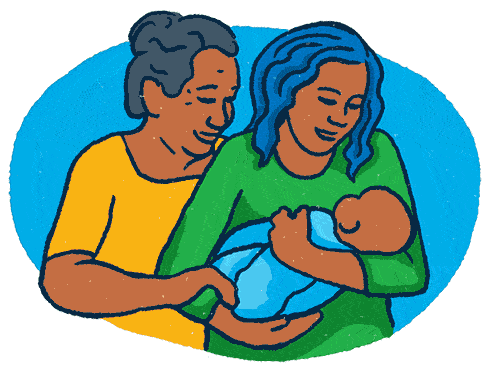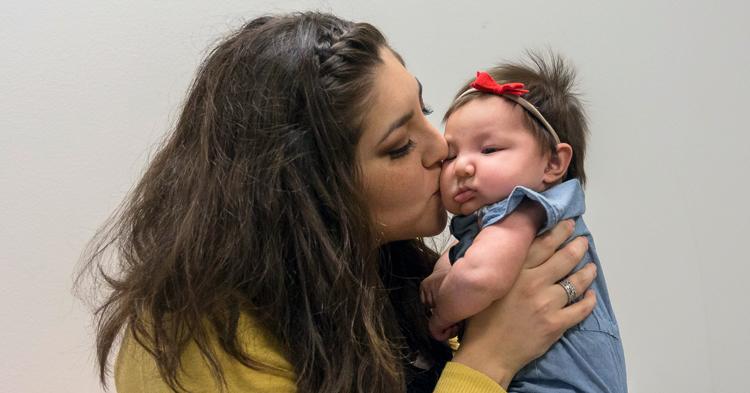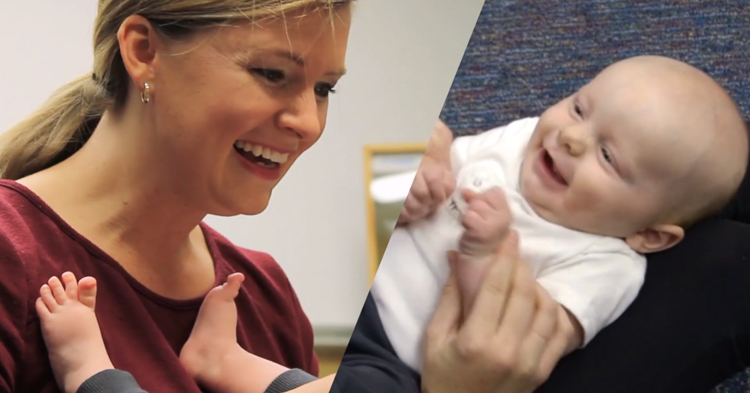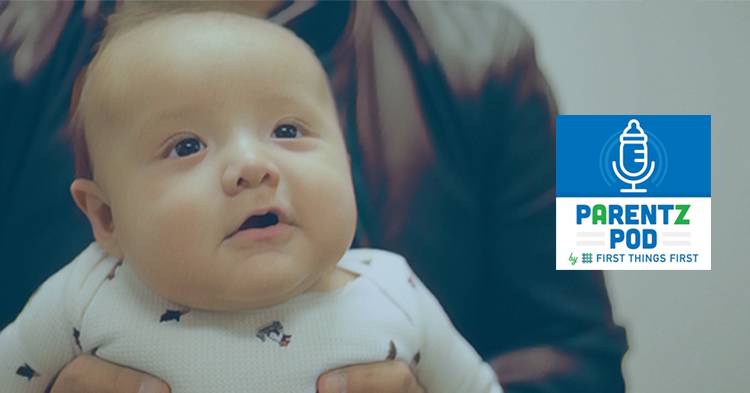
The more you know about child development, the better you can meet your baby’s needs and help them learn and grow. So here’s some information about attachment and how it relates to child development.
What is attachment?
Attachment is the emotional connection that children form with the most important people in their lives. Babies develop a secure attachment when they trust their parents to respond to their needs and soothe their emotions when they feel distressed. They feel safe and secure. They know their caregivers will be there for them. And with that confidence, they’re free to explore and learn.
Babies develop a secure attachment when they trust their parents to respond to their needs and soothe their emotions
A secure attachment is a powerful thing. Positive early attachments prepare children to have a well-balanced life later on: to be able to cope with stress, have better social skills, healthier friendships and relationships, and much more.
How can I help my baby develop a secure attachment?
By doing your best to recognize and respond to your child’s emotions and needs. A lot of positive, responsive parenting comes naturally, like making eye contact, speaking to your baby in a warm tone of voice, and tuning into their cues. Your baby communicates what they’re feeling in a lot of ways: with their cries, movements and expressions. As you get to know your baby, you’ll get better at understanding to what they’re trying to communicate and responding appropriately.
One thing to keep in mind: you can’t spoil a baby.

Your child plays a part, too.
Like all relationships, parenting is a two-way street. Your baby is a unique individual and plays a part in the attachment relationship.
A child’s temperament is their way of reacting to the world. Some babies are naturally more sensitive and harder to comfort than others. As one pediatrician/author puts it, some children are like dandelions: flowers that can thrive in almost any environment. Other children are more like orchids: highly sensitive and needing much more care and attention.
Some babies are naturally more sensitive and harder to comfort
Having a sensitive child makes your job as a parent more challenging, but the basics of building a positive, nurturing relationship remain the same: tuning into your child’s emotions and responding consistently with calm, patience and love. In doing so, especially in their first year, you gradually help your baby learn to manage their emotions.
“You are your baby’s first regulator,” says Dr. Tracy Spinrad of Arizona State University, whose research focuses on the social-emotional development of young children. “For many months, you help them calm down, and you help them develop tools they don’t have yet.”

Every child communicates their needs differently. Taking the time to watch and learn your child’s cues and communications teaches them that they’re important and cherished. Your baby may let you know she needs a break by turning away. Your toddler may let you know the mall has too much stimulation for him by having a tantrum in the food court. Responding as sensitively as you possibly can in these moments ensures your little one gets what they need from you. Learn more about Positive Parenting
More Support and Resources
Caring for a baby can be hard. You don’t need to be perfectly tuned into your baby at every moment. The daily demands and stress of life make that impossible. Taking time for self-care and reaching out for help and support when you need it are important ways to help you do your best for your child and your family.
The Birth to Five Helpline’s Fussy Baby program is a free service to Arizona parents during their baby’s first year, when there can be challenges or questions about babies that are hard to soothe or comfort. Early childhood experts are available by phone to listen, answer questions and provide support.
The Birth to Five Helpline is available at 1-877-705-KIDS (5437). Professionals are on duty Monday through Friday from 8 am to 8 pm. You can also leave a voicemail, submit your question online, or text the Helpline 24 hours a day, seven days a week.
If you feel depressed after your baby is born
Many new moms feel teary, anxious or upset after the birth of their baby. These feelings usually last about two weeks and are not serious. But if you have strong feelings of anxiety or depression, or you have felt depressed in the past, get help right away. Postpartum depression is serious and can keep you from developing a positive relationship with your baby. Talk to a doctor or contact the Arizona Pregnancy and Postpartum Warmline.
This article includes research and contributions by students from Barrett, the Honors College at Arizona State University. Thank you!
- Course: CDE 430 – Infant/Toddler Development in the Family, Fall 2020
- Instructor: Tracy Spinrad
- Contributors: Kaley Matthews, Hope Melton, Jocelyne Partida, Mitchell Rines, Manasa Swaminathan




